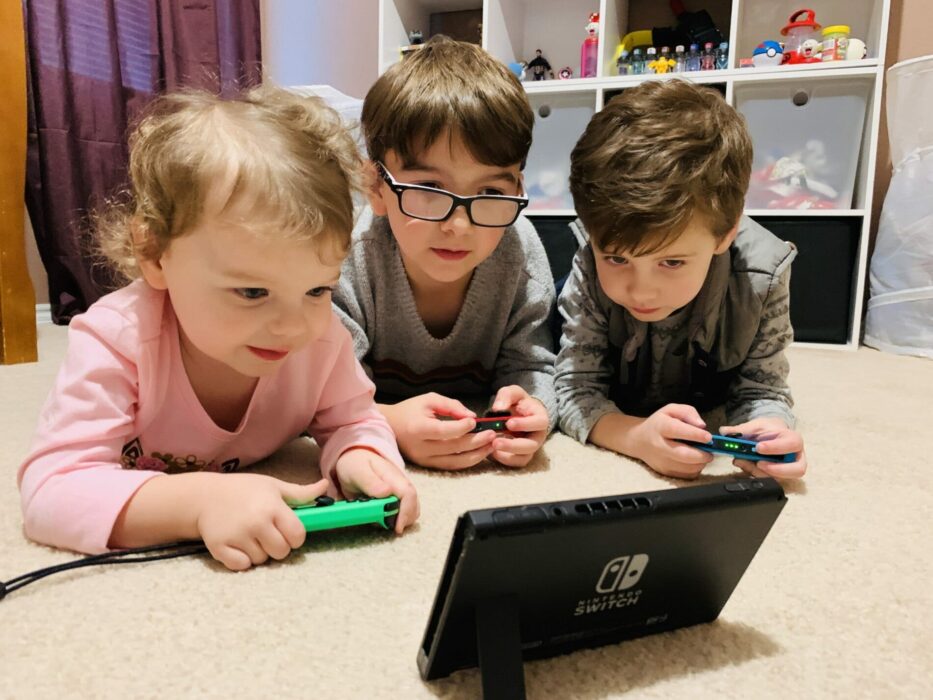Playing online games safely
Parents often think that if their children play online games they are missing out on healthy human interaction and social skills. However, many parents don’t realise that games may be tools that are just as useful as books, movies, sports – each in their own way, says Andrey Sidenko, an expert on children’s online safety at Kaspersky.
According to Kaspersky research, the main activities kids are interested in online are videos and YouTube – and queries related to video games in particular (32.3%). Many parents are not aware that games are not only for fun but surprisingly, they may also help children to level up useful skills, perform better academically and build better relationships with other people.

Games as an educational tool
It is not only left to books, films or art to have a positive effect on the development of a child, gaming should also be included on the list! Today there are many beautiful and complex games that require a child to sharpen their fine motor skills, increase their attentiveness, foster persistence, teach them to make quick decisions and plan ahead – sometimes even several steps at a time.
Some games are popular with not only students, but also teachers and not so long ago a special version was released with assignments for a number of school subjects. Multiplayer games are an excellent way of honing communication and teamwork skills, while simulators give free rein to the imagination. A recent study by the Institute for Cognitive Neuroscience at the Ruhr University in Bochum, Germany, says that some of the areas of the brain responsible for learning are better developed in gamers.
Not only this, the study showed that children who played more than 15 hours a week performed better on a critical thinking test than those who only played occasionally.
Playing video games doesn’t lead to violent behaviour
The mass media often link violent video games to real-life violence. Debate on the topic generally intensifies after mass public shootings that we see on the news, with some commentators linking these violent acts to the perpetrators’ interests in violent video games. But there are many studies that reveal there is either no correlation at all or a minuscule one between gaming and aggression.
Ok, let them play but streaming is really a waste of time
There is one more gaming hobby that became popular amidst adolescents. It is live streaming, an activity where people broadcast themselves playing games to a live audience online. The audiences for these streaming services are enormous.
According to Nielsen, streaming video audience share is higher than broadcast TV. It is really hard for parents to share this addiction and understand why streams are so attractive for their kids. Most likely, they are interested in watching a game that they themselves cannot play. But we adults often spend our spare time watching TV shows. Maybe that’s more waste of time than streaming?
Cyberthreats to gamers: this is what your kids should know
Gaming accounts contain a lot of valuable information, and people with bad or malicious intentions hunt for these accounts. As the player moves on to new levels, buys in-game equipment, collects loot (in-game valuables obtained in virtual combat) and the blogger gains views, accounts acquire a special value – and the account can be easily sold on the black market.
According to Kaspersky’s study, a single account in entertainment or streaming services, including Twitch, costs between $0.50 and $8 on the darknet. The best way to protect your accounts is to use strong passwords. Explain to your kids that safe playing only is possible if they use exclusively legitimate resources and they’re extremely careful when installing a game.
Safety tips
✔ Check the rating: not every game has content that is generally suitable for all ages. Check the ratings of the games your children play and make sure they are age-appropriate.
✔ Make gaming a subject of discussion: if you don’t like the game, try to offer an alternative, such as another game or a fun, stimulating offline activity. If a child spends too much time on gaming, help them to find other types of entertainment to connect with everyday real life and people.
✔ Control gaming time together with your child: you can install a special application that will control screen time, but it is very important to let your child know about this beforehand.
✔ Cyber literacy is a must! Teach your child cyber literacy. Talk to them about how valuable their data is, how to protect it, and how to recognise scams and phishing. Make it a rule to protect gaming and streaming accounts, as treating accounts carelessly can lead to unpleasant surprises.
✔ If something looks too good to be true, then it’s most likely fake: a site that distributes one of the most anticipated games for free before its release is clearly a fake.
✔ Think twice before you enter your data: this ‘think twice’ ethos also applies to paying money or downloading any unnecessary programmes in order to get access to some coveted file or key.
✔ Create strong unique passwords for all accounts: do not share them with anyone and change passwords regularly – this applies to all online accounts, not just game accounts. The most convenient way to do this is with a password manager.
✔ Use a reliable security solution such as Kaspersky Total Security: this security solution can recognise cyberthreats, block phishing sites and prevent navigations to malicious pages.
And there’s a special game mode you can activate so that the solution doesn’t interfere when you or your child are playing.
Adults often have many biases that can complicate the interaction with our children. The world we live in now differs from the world of our childhood. It’s true that it’s much more digital, but we should adapt to this new reality as our children are part of this modern world.
Their interests may be different from ours but there are advantages for us as well, as children can help teach us and open a new brand world to us adults. So don’t be afraid to break your patterns and remember that your task is to help your kids to explore the digital world safely.












Comments